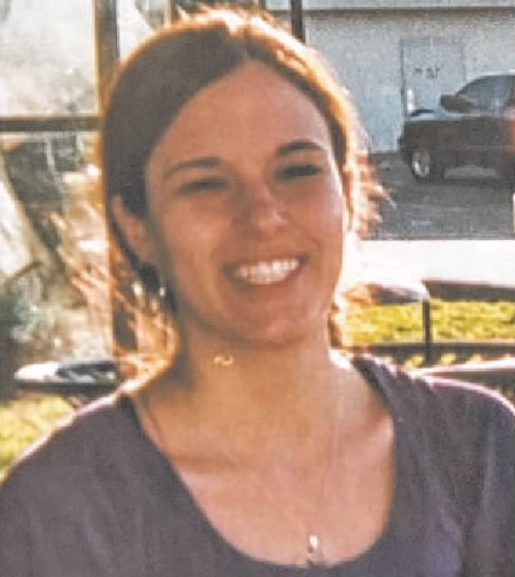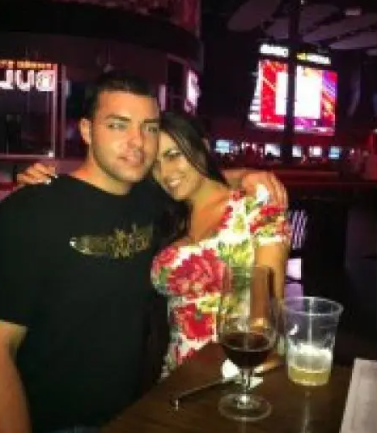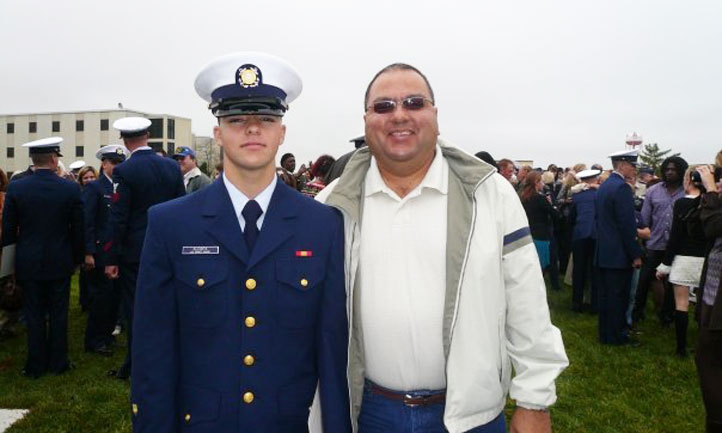A young couple falls in love, but their relationship is headed for tragedy. What happened to Michelle and Paul, and could it have been prevented?
Episode Media




Episode Sources
- Cops probing murder-suicide
- Murder-suicide victim identified
- Murder Victim Michelle Johnson Was a Sunny, Sweet Presence at Tortilla Press
- The Complicated Tragedy of Paul Aldapa and Michelle Johnson
- Father mourns slain woman part 1 | part 2
- Michelle Johnson Viewing Tonight in Haddonfield
- Finding Hope After Suicide Loss | TAPS
- This is Michelle Amber Johnson
- Michelle Johnson Obituary (1990-2012)
- Paul Raymond Aldapa Obituary (1989-2012)
Episode Transcript
Welcome back to Bite-Sized Crime. This week’s case was recommended to me by a listener, and when I started looking into it, I was saddened by what seems to be a completely preventable tragedy. And although there is very little information to be had about Michelle and Paul’s story, I believe it deserves to be told in the hopes that others can be saved. This episode discusses sensitive topics, so listener discretion is advised.
Michelle Amber Johnson grew up in the small town of Martinsville, Virginia. Her parents separated when Michelle was young, and she was raised by her father. James Johnson described his daughter as sweet and funny, telling the Courier-Post that she was “a go-getter and very responsible.” Michelle was kind and generous to others, and she had big dreams for her future.
But it was hard to make big dreams a reality in a small town, so after high school, Michelle headed north. In 2009, she got an apartment in Collingswood, New Jersey, just across the river from Philadelphia. She got a job as a hostess at the Tortilla Press, a Mexican-inspired restaurant in downtown Collingswood, and eventually worked her way up to server. According to her co-workers, Michelle was soon raking in the tips; customers loved her smile and charm. She seemed to fit perfectly into the restaurant life, and she even started talking about opening her own restaurant someday, tucking away money for the future.
Although Michelle’s professional life was going well, her personal life had been rocky since leaving Virginia. She had moved to New Jersey with a boyfriend, but as time went by, he had become more and more controlling and abusive, until finally Michelle knew she had to leave. She managed to break free of the relationship, but the experience left her shaken. She told friends that she was going to focus on herself for a while and not worry about finding love right away.
And that’s exactly what she did. For the next two years, Michelle worked at the restaurant while also taking college courses. She enjoyed her independence, making her own decisions and charting a course for her future. She had a solid group of friends who supported her and had kept up a close relationship with her father, even though he now lived several states away. As she approached her 21st birthday, everything was coming up roses. Her dad told the Courier-Post, “From what she was telling me, she was getting along great. She had friends. A lot of people loved her… She’d told me everything was going good, that they were having fun.”
Michelle eventually decided she was ready to get back into the dating scene. In September of 2011, she met a handsome young petty officer with the United States Coast Guard, and she fell head over heels.
Paul Raymond Aldapa was born and raised in Southern California. The youngest of three siblings, Paul was considered the jokester of the family. He loved to make people laugh and was known for his warm smile and enthusiastic hugs.
Paul grew up in a military family. His grandfather had been an officer in the Army Air Corps, and his father was retired from the Air Force. His older brother Tony was serving in the Navy. It was almost inevitable that Paul would enlist someday.
In high school, Paul worked hard in his classes and did well on the school’s wrestling team. He joined the Army Junior Reserve Officers’ Training Corps, otherwise known as JROTC, a program designed to foster leadership skills in high school students. Paul thrived in the structured environment and after graduation, chose to join the Coast Guard. Paul wanted to become a police officer, and he felt that the Coast Guard would give him a better chance at being accepted into the police academy. He moved across the country and settled into life in Philadelphia as a part of the Coast Guard’s Delaware Bay Sector.
In the Coast Guard, Paul found the same structure and sense of community that he’d had in JROTC, and his fellow officers spoke highly of him. When he wasn’t on duty, Paul worked as a bouncer at a bar in downtown Philadelphia. Even there, his co-workers didn’t have a bad word to say about him. Paul was calm and even-keeled, and he was good at his job. One colleague told Patch News that even though Paul was a bouncer, no one could remember him ever getting in a fight. When Paul eventually applied for the police academy, the bar owner gave him a glowing recommendation.
When Paul met Michelle in the fall of 2011, sparks flew instantly. Michelle was thrilled to meet a man who had his life together, including a stable job and a nice apartment in the city. But after her last disastrous relationship, Michelle wanted to move slowly. She wanted to make sure that a relationship with Paul was the right thing for her.
And for a while, it was. Michelle and Paul were both young and attractive, they had a similar sense of humor and big dreams for the future. But as the months passed, the relationship began to sour. Paul told a friend that he and Michelle were too similar, that they knew how to get under each other’s skin and could bring out the worst in each other.
Paul’s anger began to surface more and more. Things that others would simply brush off would send him into a rage. Michelle confessed to a friend at work that Paul had become “jealous, possessive, and controlling.” He wasn’t violent, but she worried that he could be.
Eventually, Michelle had had enough. She told Paul that if he wanted their relationship to continue, he had to get help. Paul agreed, and he soon began counseling for anger management. According to his father Mike, Paul was worried that getting help for his anger would reflect badly on his military service, so he sought out a civilian counselor outside of Coast Guard circles.
But even with Paul receiving professional help, Michelle felt that the relationship had run its course. In the summer of 2012, she told a coworker that Paul was smothering her, that she felt she just wasn’t meant to be in a relationship with him.
Paul wasn’t willing to give up, however. He begged Michelle to stay, to forgive him for his angry outbursts. His enlistment would be over in a few months, and the change would lower his stress levels; things would definitely get better. He even bought Michelle a bridge pass and offered to pay for her gas so she could visit him in the city more easily. Michelle eventually agreed; she knew Paul was trying to work on himself and wanted to give him the benefit of the doubt.
Sadly, this decision would end in tragedy.
On July 18, 2012, officials at the Coast Guard station noticed that Petty Officer Aldapa hadn’t reported for duty that morning. This was extremely out of character; Paul was punctual and reliable. They contacted the Philadelphia Police Department and requested a welfare check.
When officers knocked on the door at Paul’s apartment on Gateway Drive shortly after 2pm, there was no answer. Believing that Paul could be in danger, they entered the apartment and found a terrible scene: the bodies of Paul Aldapa and Michelle Johnson, both dead from gunshot wounds.
Authorities believe that Paul shot Michelle in the head before turning the gun on himself. There was no note left behind, no evidence of a fight, suggesting that everything happened quickly, that something had caused Paul to snap. Their deaths were officially ruled a murder-suicide.
The news absolutely devastated Paul and Michelle’s family and friends. The prevailing sentiment was disbelief: it wasn’t possible, no one had seen it coming. Yes, Paul had some anger issues, but as far as everyone knew, he was working through them, and he had never been violent before.
A friend of Paul’s spoke to Patch News anonymously, stating that even when Paul got angry, he moved on quickly – his rage didn’t last. “I thought I knew what domestic violence looked like, and the people who carried it out and the people who were the victims of that. Paul doesn’t fit with what I saw of that.”
To those who knew him, Paul was a fun, easy-going guy. His brother Tony told Patch News that growing up, Paul never got angry. According to his father, Paul was never diagnosed with PTSD or any other mental health issues during his time in the Coast Guard.
But we know that mental illness and domestic violence take many forms, and are often unseen by loved ones. Both Paul and Michelle had confided in friends that their relationship was rocky, often marred by fighting and angry outbursts. But no one ever guessed it would end in tragedy.
We’ll never know what happened the day Paul and Michelle died. It’s tempting to vilify Paul and make him out to be a monster who murdered his girlfriend and a coward who took his own life. But I can’t help thinking how everything could have been different. In the world of true crime, we hear story upon story of domestic violence and abuse, of anger and death. So many times, the tragedy could have been prevented. Let me be clear: Paul made his choices and he is to blame for taking two lives that day. But I also believe he was trying to get help, trying to change. It just didn’t come in time.
Since Paul and Michelle’s deaths, Paul’s father Mike has made it his mission to help other military families struggling with suicide loss. In 2014, he joined the Tragedy Assistance Program for Survivors – also known as TAPS – a nonprofit organization that provides care and resources for grieving military families. Mike became a Peer Mentor for others who have lost loved ones to murder-suicide. He believes that there were signs of mental illness in Paul that just got missed, and he doesn’t want that to happen to anyone else.
Michelle’s father James spoke to the Courier-Post in the weeks after his daughter’s death. He spoke of her kindness and generosity, of her love for life. “She blessed my life for 21 years. I’m the lucky one.”
Michelle’s friends at the Tortilla Press raised money for her funeral expenses and got local businesses to support the cause. They even established a foundation in her name to support other victims of domestic violence. In a beautiful tribute to her life, they wrote, “We are grateful we had you for as long as we did, though it wasn’t long enough. We hold true in our hearts that you are at peace, watching over us and inspiring us each day. Your strength and beauty will continue to live on through us all. You will always be dear to us and we will love you forever.”
If you or someone you know is struggling with depression or suicidal thoughts, please reach out for help. Call or text 988 or visit 988lifeline.org to chat with a trained counselor who can connect you to the support and resources you need. If you are experiencing domestic abuse, please contact the National Domestic Violence Hotline at 1-800-799-7233 or text START to 88788 for free and confidential help. You don’t have to suffer alone.
